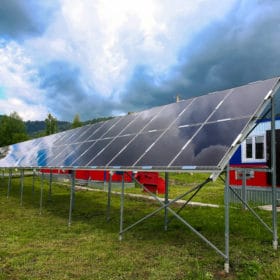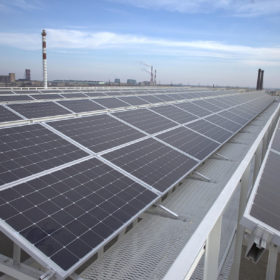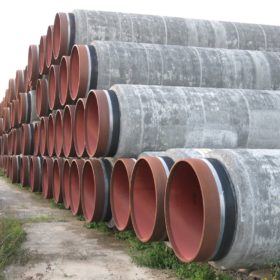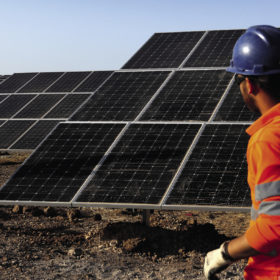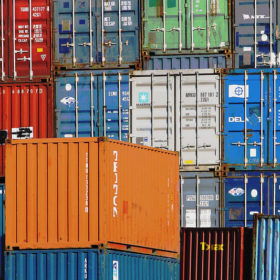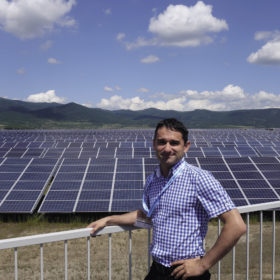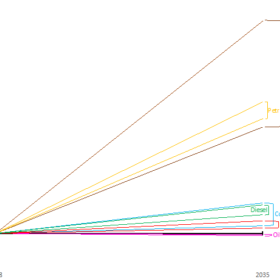Heterojunction solar cell based on new black silicon achieves 7.5% efficiency
Russian researchers have developed a heterojunction device based on a new wide-band black material called “black silicide.” The cell has averaged reflection (AVR) of 15% in the spectral range of 200 nanometers to 1,800 nm and purportedly can reach an efficiency of 10%.
Sanctions stall 100 MW of solar in Russia
Construction of the 100 MW Sputnik solar plant in Russia’s Volgograd oblast has been suspended and possibly canceled, due to Western sanctions imposed in response to the Russian invasion of Ukraine, according to sources.
Sanctions hurt but don’t cripple Russian renewables, says industry group
The Russia Renewable Energy Development Association (RREDA) said in a new report that investors are still interested in building new renewables projects in the country, despite harsh market conditions related to Western sanctions.
European energy without Russian gas
Scientists in Denmark have modeled the likely impacts of reduced gas supply on the European energy mix up to 2050. Their research finds that if the continent is to achieve the Paris Agreement goal of limiting global average temperature increase to 1.5 C, then gas consumption would need to be heavily reduced, anyway. In less ambitious climate scenarios, however, limited gas supplies could delay the phase-out of coal-fired electricity and lead to longer-term uncertainty over fuel and electricity prices.
High-voltage sodium-ion batteries with up to 15% higher energy density
Researchers in Russia have developed a new sodium-vanadium phosphate fluoride powder. It has a particular crystal structure that provides superior energy storage capacity in the battery cathode.
New kind of black silicon shows improved light-trapping properties
Scientists in Russia have developed a new wide-band optical absorber called ‘black silicide’ which they claim is more adjusted to match AM-1.5 solar spectrum with theoretically higher photogenerated current density. It could be used for tandem operation in photovoltaic devices.
Clean power prices leap on back of tightening gas supply
Developers are making hay as far as PPA prices are concerned thanks to eye-watering wholesale electricity prices which mean they can just sell their solar and wind power on the open market.
Analyst predicts extent of rise in this year’s solar capital costs
Wood Mackenzie this week made a slew of predictions for the industry in 2022 and noted the effects the US’ recently announced anti-circumvention investigation is already having on utility scale plans.
The weekend read: Ripple effects of Russia-Ukraine crisis on renewables
The war in Ukraine has acted as a brutal wake-up call for governments to act and reduce their dependence on Russian fossil fuels. Many have pledged to hasten project timelines for renewables, but there are mixed reports about impacts on investor confidence and projects under development in Ukraine’s neighboring countries. Marija Maisch reports.
Ukraine invasion reshaping discussion about energy, pricing, renewables
Indra Overland, the head of the Center for Energy Research at the Norwegian Institute for International Affairs, tells pv magazine how the Ukraine war is irreversibly changing the global energy landscape, making massive renewables deployment a certainty. But labor issues, equipment shortages, and reliance on Chinese manufacturing remain obstacles.

